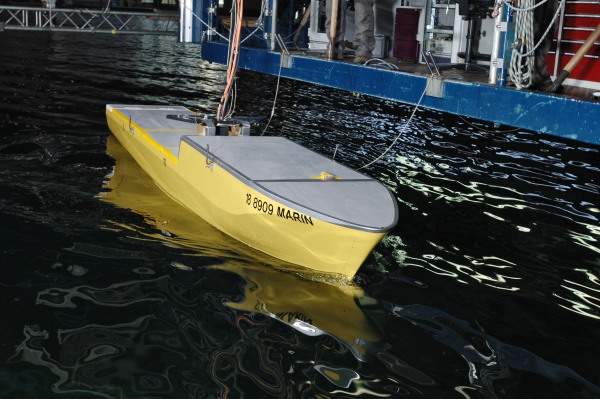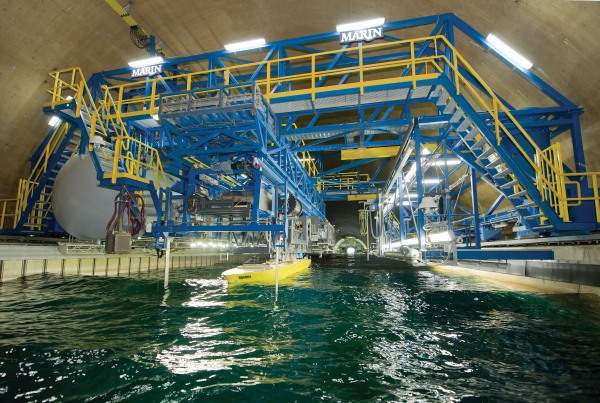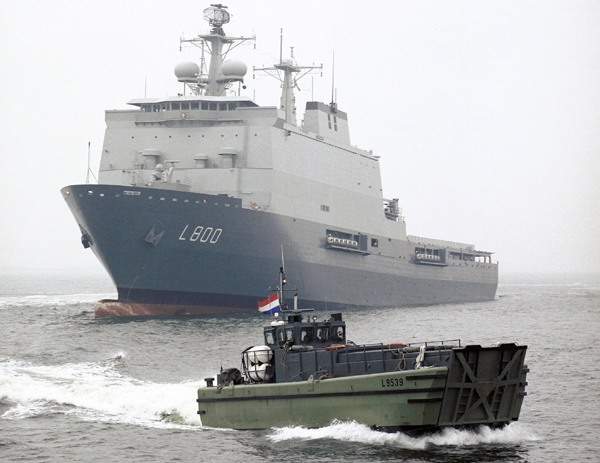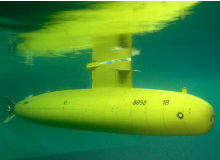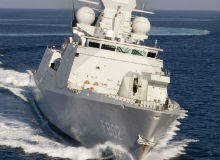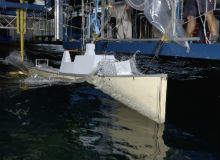
MARIN is an independent and innovative service provider, specialising in hydrodynamic and nautical research.
For more than 80 years MARIN has been involved in studies for complex naval vessels, yachts, cruise liners, ferries and other special vessels, ranging from advising about new designs to trouble-shooting on sailing ships. Its broad portfolio includes hydrodynamic vessel optimisation, model testing for powering, manoeuvring and seakeeping behaviour, as well as full-scale testing.
MARIN is your partner for all your hydrodynamic and nautical questions during the design, trial and operations of your vessel.
Hydrodynamic vessel optimisation
In the early concept stage of vessel design MARIN offers support with its vast knowledge built up over decades, backed by a database of more than 9,500 ship and 7,500 propeller models. Minimising resistance by optimising the vessel lines and ensuring that the vessel has fitting propeller characteristics is just the starting point of our services.
Based on our experience many engineering and state-of-the-art computational fluid dynamics (CFD) tools have been developed to provide support in the concept design phase of the vessel design. Verification of the requirements and critical issues is performed in an early phase of the naval vessel design.
CFD for naval ships
CFD tools play an increasingly important role in MARIN’s services to the naval industry; permitting a more detailed analysis and design, providing a clear diagnosis of problems, giving insight into scale effects and predicting full-scale forces, to name a few.
CFD can be used for a wide variety of applications, from consultancy in an early design stage to high-end calculations in order to accurately determine the ship’s performance.
For several years now, CFD has been used to evaluate and improve the hull flow quality and to understand flow physics and improve MARIN ship designs. These calculations can also be used to do appendage alignment, wave pattern prediction and, in the case of model testing, prediction of scale effects on resistance and wake field.
Model testing
Model testing is an important tool in the development of naval and other vessels in order to determine and solve critical aspects during the vessel design phase. MARIN’s capabilities include dealing with critical issues such as performance, manoeuvring behaviour prediction and seakeeping behaviour, e.g. survival of naval ships under severe conditions.
MARIN has state-of-the-art facilities including towing tanks, a large manoeuvring and seakeeping facility and depressurised wave basin with a special silent carriage for acoustic measurements. Where needed, free running tests are performed whereby the model follows an arbitrary predefined track (straight or curved) through the basin and the carriage follows the model.
Deviations from the predefined track are minimised through a dynamic positioning feedback loop, which controls the propulsion units, additional thrusters and steering within a particular control scenario. Motion control is realised by means of a feedback loop, which activates related stabilisation systems (fins, foils, rudders, etc.).
Naval simulation
MARIN simulators serve the professional maritime world by facilitating studies and training in complex, realistic simulation environments. The simulators are based on high-end hydrodynamic data, derived directly from model tests. The projected visuals include effects such as light breaking, mirroring, shadowing, the use of spray, foam, 3D fog, smoke, fire, snow, etc.
MARIN’s simulators combine an understanding of both nautical practices and sophisticated hydrodynamics. Experienced instructors operate the simulator and (de)brief the participants. Objectives include accident investigations, manoeuvring capabilities, operational procedures, safety studies and training. Simulating is an incredibly valuable tool, especially in the naval world and it often leads to substantial cost savings as well, which is vital in this age where budgets are under pressure.
Full-scale vessel testing
MARIN provides onboard measurement and analysis of in-service performance, as well as operations at sea. We conduct short-term measurements and long-term monitoring campaigns on a worldwide basis.
MARIN’s major competencies are hydrodynamics, structural analysis, instrumentation, measurement technologies and data analysis, and it provides services including in-depth analysis of speed, power, propulsion, noise and vibration, manoeuvring, seakeeping and structural problems. MARIN can also assist in assessing fatigue and increasing the lifetime of naval vessels.
Joint industry projects
MARIN is a strategic R&D partner of the Dutch Ministry of Defence and has been involved in all the large naval vessels of the Royal Dutch Navy. MARIN’s role in the development of maritime knowledge on naval vessels is shared with the market through participation in forums such as Cooperative Research Ships (CRS) and the Cooperative Research Navies (CRNAV). The CRNAV consortium was established in 1990 to study the mechanisms of capsizing and to develop guidelines for safe naval ship design and operation at sea, including extreme conditions.
MARIN organises seminars, workshops and joint industry projects around common research topics, bringing all stakeholders around the table, including government representatives, classification societies, shipyards, component builders and ship operators


